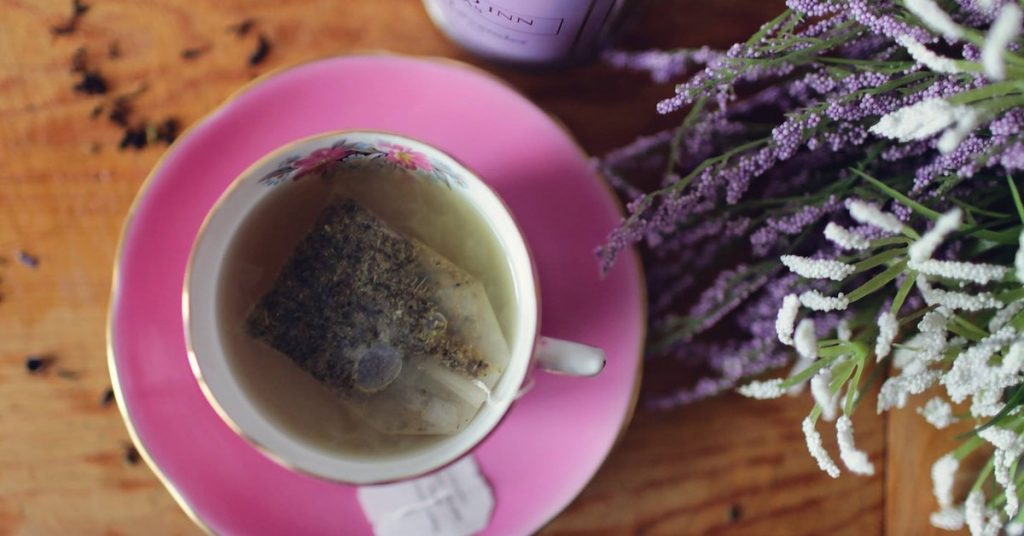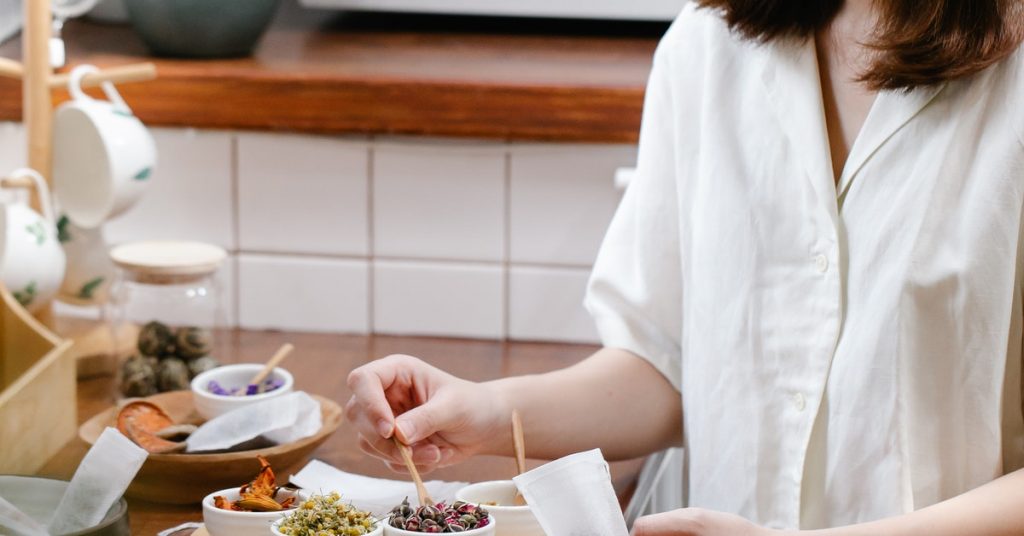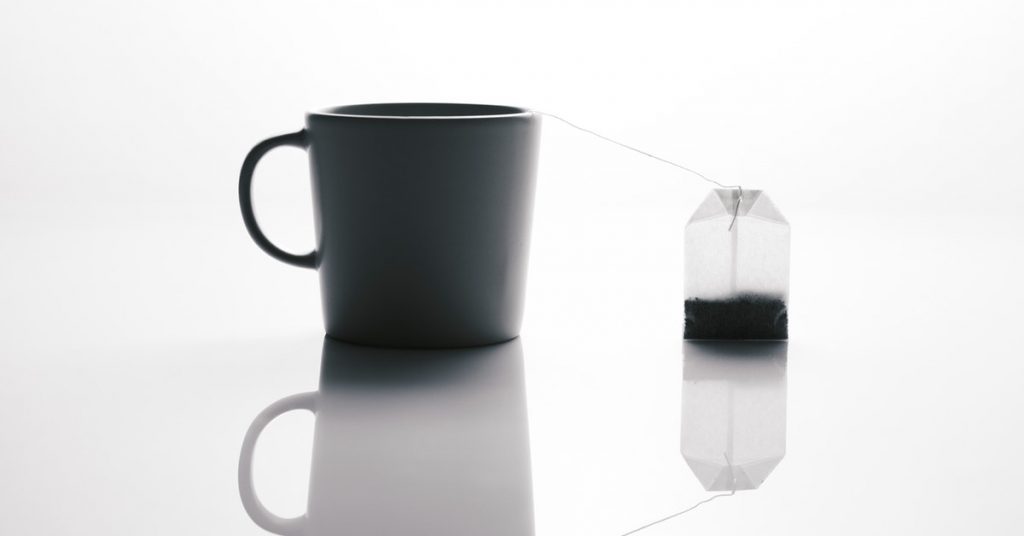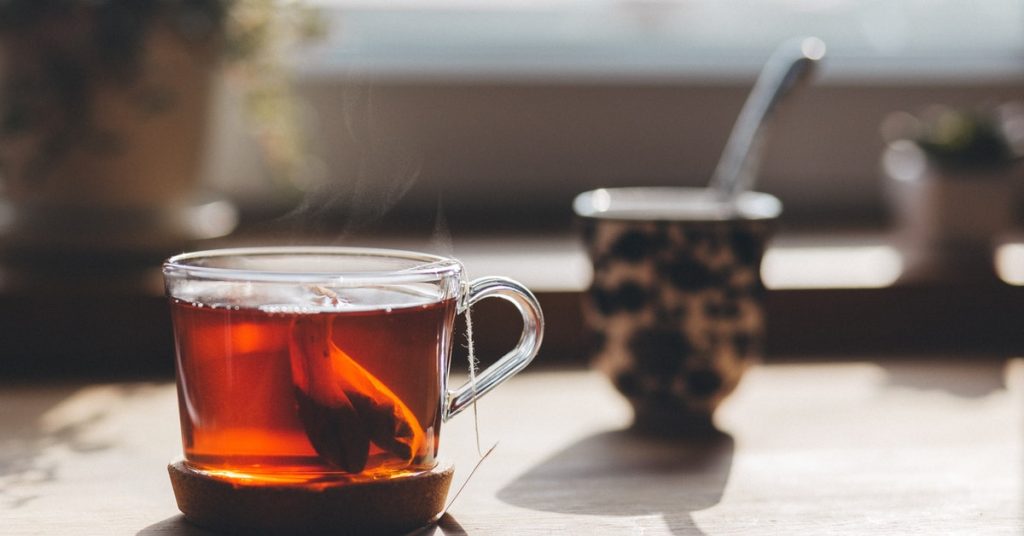So, are tea bags compostable? Well, it depends on the material of the teabag. Biodegradable tea bags that are free of plastics and metal can be composted. However, many teabags include a tiny bit of plastic or small metallic staples that cannot be composted.
Are you a tea connoisseur who is also concerned about the environment? If so, you’ve probably wondered and asked yourself, “are tea bags compostable?.”
Before you throw your teabag into the compost pile, you need to know whether it contains compostable material.
Many popular tea bags can be composted, but there are a few limitations and considerations to bear in mind.
Knowing how tea bags are created, the materials they’re comprised of, and which tea bags may be composted organically is essential.
You need to know about the actual bag before determining whether or not you can start composting them.
Let’s talk about it.

What Are Tea Bags Made Of?
Tea bags are the little pouches and satchels constructed of permeable fabrics used to steep teas. These bags are meant to protect loose-leaf tea and herbs from floating in your cup.
It is meant to be porous enough so that hot water may pass through it and be turned into a delicious tea.
Tea bags make it very simple to combine the water with the aromas and nutritional benefits of teas and blends.
They exist in various forms and sizes, but they all serve the same fundamental function and are used in the same manner.
Furthermore, tea bags may be constructed from various materials — and many of them are not meant to be composted or biodegradable.
When it comes to composting, it’s crucial to know what materials are used in the tea bags and how to identify what yours are composed of. Then you can make the decision whether to trash or compost.
When examining the components in your tea bags, keep the following things in mind:
- Overall teabag material
- Sealing materials
- The tea infusion inside the teabag
- Tags, strings, and other connected components
In some cases, you can’t compost the teabag as a whole. However, there are various ways to compost the different materials individually.
Materials Used In Making Tea Bags

Tea bags are often made of the following materials:
- Filter Paper – This material is mostly composed of organic pulp, such as hemp, which is formed into the structure of the teabag and may be entirely decomposed after usage.
- Plastic – Some bagged teas include minor amounts of plastic or maybe manufactured completely of plastic mixes that are not biodegradable and cannot be composted.
- Silk – Tea bags made of silk, despite its declining popularity owing to increasing prices, are biodegradable and can be composted easily.
- Material Blends – Remember that certain tea bags are produced with multiple different items in order to achieve the appropriate balance of permeability. Manufacturers tend to blend materials to also keep the bags together during shipping or usage. Keep this in mind, and make sure to read the material labels carefully.
All tea bags are sealed in a certain manner to keep the bag closed. Biodegradability isn’t impacted by some of these procedures, while others render the bags unusable in the composting process. Here are the different types of teabag sealing methods and their compostability:
- Folding – Some tea adheres to itself without glues or chemicals as a means of keeping them sealed. These kinds of bags may be composted.
- Tying – Some manufacturers utilize cotton threads for securing the teabag. Cotton is an organic material, thus it may be thrown into the compost heap.
- Gluing – Numerous popular tea bags include a polypropylene-containing adhesive to seal their bags. It’s biodegradable, but the composting process takes way too long.
- Staples – Also prevalent are metal clamps and staples. However, they are simple to eliminate before composting tea bags.
Compostable vs Non Compostable Tea Bags

Whether you wish to compost tea bags or put them directly into houseplants or soil, you need first to determine if the teabag itself is biodegradable.
Polypropylene may make up more than half of tea bags. This is a non-biodegradable synthetic substance that mimics plastic.
Tea bags with a heat-sealed rim may be soft to the touch. You should not compost tea bags that include any of these synthetic and chemical ingredients. Instead, toss them away.
Compost Decomposition Of Tea Bags
When using compostable tea bags, the process of decomposition may take somewhere between three to six months. However, this depends on your soil’s composition, seasonal temperature, and how deep the tea bag is buried.
Once the bag is on your compost pile, your tea bag will slowly decompose into a mixture of chemicals such as carbon dioxide. Furthermore, natural bacteria and fungus continue to break down the material in your tea.
This is where plastic can be a hindrance. As long the teabag it’s plastic-based, it will never completely degrade, well not in my lifetime!
Is biodegradable the same as compostable?
What Is The Difference Between Biodegradable and Compostable?
A compostable material can decompose into natural fertilizers without leaving anything behind.
Biodegradable materials break down into carbon dioxide, water, and biomass-which is a process that takes time.
Unlike biodegradables, compostables can seem like regular trash but eventually get eaten by microorganisms and turn into soil.
The question of whether or not an item is biodegradable can depend on its makeup. Compostable tea bags are becoming more common; let’s check them out.

Different Brands That Offer Compostable Tea Bags
That being said, if you love tea and care for the environment, make sure that you purchase tea bags from brands that do their part.
On your next trip to the grocery store, you may choose from these brands that offer compostable tea bags:
Bigelow
Bigelow teas are readily available at almost any local grocery shop and are without a doubt one of the most well-known teas on the market.
From a traditional English Breakfast to their featured collections, the brand has a broad variety of flavors to choose from.
Celestial Seasonings
Celestial Seasonings uses “iconic” artwork to entice buyers to try their product. A combination of wild herbs was concocted by inventor Mo Siegel in 1969 and wrapped in hand-sewn muslin sachets.
As time passed, the brand’s meticulous attention to detail remained, and it can still be seen in its work to this day. In addition, it takes an admirable stance on a number of key environmental concerns.
In their sustainability story, “Blended With Care: From Seed to Sip,” Celestial claims to have saved 3.5 million pounds of trash from entering landfills each year, despite no longer using hand-sewn muslin tea bags.
They also claim that their tea bags are now made from natural fibers and do not contain any tags or other unnecessary materials.
Stash
These tea bags do not contain any harmful chemicals or microplastics. Because they are comprised of cellulose fibers, the filter paper utilized by Stash does not need the use of adhesive, staples, or other things to keep the contents in place.
All of the components that come into contact with your cup, from the tea bags to the water, are Non-GMO and biodegradable.
The best part? There’s something for everyone in their collection of more than 150 different flavors.

The Republic of Tea
The Republic of Tea provides a whole page of educational materials on composting tea leaves if you’re interested in learning more.
In addition to its Tea Recipes, Tea News, and all the information you need about The Republic of Tea’s commitment to charity without compromise. Also, there is a wealth of information about the company’s generosity on its website.
If you compost your tea leaves, you’ll not only be doing something environmentally friendly, but you’ll be doing something that will benefit your plants as well.
Tea Bags as Fertilizer
Tea bags may be used as plant fertilizer by “digging” them up and burying them near your plants.
Your plants will benefit from this method because, as the bags break down, they will release nitrogen, which is essential for their growth.
As long as it’s near the roots, it’s a smart option.
While this strategy works, it is also “green,” meaning that it is a long-term solution to your garden’s problems. However, this alone will not lessen your carbon impact on the world, but it’s a good start.
Tea Bags for Maggot Control
Worms are beneficial to the health of your plants and soil; in fact, they are critical to the ecology of your garden. But some little guys don’t actually help.
Maggots. Maggots are a hindrance, but there is anecdotal evidence that using tea leaves and also coffee grounds can deter them.
Are Tea Bags Compostable – The Bottomline
Now, you’ve got your answer! Tea bags are compostable if they contain compostable materials. But many tea bags contain plastic, which cannot be thrown into your compost pile.
Its always best practice to check out the materials used in the process before composting them. Or better yet, buy teas from brands that offer compostable bags.
